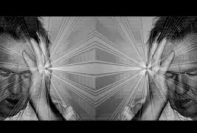Motivation can be defined as a reason (or reasons) which leads an individual to act in a certain way. Motivation is the force that causes an individual to take action and initiate, guide and maintain behaviors. There can be variety of different forces at play behind the cause of motivation. Over the years researchers and psychologists have come up with variety of different theories to explain the idea of motivation.
Looking at different theories of motivation individually, they seem incomplete and lacking to explain the whole idea of motivation. However, looking collectively at key ideas of different theories, the understanding of motivation as a whole gets better.
Among different factors affecting motivation, such as biological, emotional, social or cognitive, we have listed out some of the key Theories of Motivation.
Instinct Theory of Motivation
Instinct theory of motivation suggests that the key to our motivation is biological or genetic programming of our body. The general idea is that similar motivations occur on humans because of the similar biological programming shared by humans. As we act or behave on other motivations emerged as a result of our core motivation, all our actions are considered as instincts. A popular example is seasonal migration of birds due south in winter.
William James was among the psychologists to study the instincts. He pointed out human instincts such as fear, love, shame, anger, cleanliness and modesty. But, due to the lack of explanation of behavior by instinct theory, instinct theories were pushed aside by the 1920s. However, contemporary evolutionary psychologists still study instinct theories of motivation to discover the effects of genetics and heredity on behavior.
[Related Reading: Instinct Theory of Motivation]
Incentive Theory of Motivation
The theory of motivation that suggests that the behavior is motivated because of reinforcement or incentives is referred to as Incentive Theory of Motivation. It suggests that our actions are influenced by outside incentives, and we are attracted to the incentives rather than having the desire to reduce stimulus.
The theory is quite similar to Operant Conditioning, as rewards drive our actions. The only difference is that we know about the rewards and we intentionally perform actions in order to receive rewards. So in that sense, greater the rewards – higher the rate of actions to pursue reinforcements.
[Related Reading: Incentive Theory of Motivation]
Drive Reduction Theory
The theory suggests that we do what we do in order to reduce the internal tension caused by our unfulfilled needs. For instance, we drink water when we feel the internal tension inside our body caused by thirsty.
After being proposed in 1943 by Clark Hull, it was quite popular till late 50s. However, the theory is largely ignored today because of few problems. One of the problems in the theory is that it doesn’t explain why we eat even when we’re not hungry. Also, humans and animals alike tend to engage in various activities even when they aren’t facing any natural drive.
[Related Reading: Drive Reduction Theory]
Arousal Theory of Motivation
This theory suggests that individuals take certain actions in order to increase or decrease heir levels of arousal with a goal to maintain an optimal level or arousal. The arousal theory of motivation suggests that each individual has different arousal level that is perfect for them. The theory also suggests that we tend to seek for our own stimulation in order to maintain our optimal level of arousal.
For example, we go to night out with friends at a club or someplace where we can get our arousal elevated again when we’re down. But, arousal levels don’t always drop and there’s a good chance that energy levels are too elevated. In those cases when you’re too pumped up, taking a nap or going for a relaxing walk might help you soothe your arousal level again.
[Related Reading: Arousal Theory of Motivation]
Humanistic Theory of Motivation
This theory of motivation suggests that our cognitive processes are also one of the factors that affect our actions. Abraham Maslow’s Hierarchy of Needs is one famous humanistic theory of motivation, which presents motivations at different levels.
The very first need is always biological needs such as food and shelter. Once the lower level needs are met, we tend to move up the hierarchy pyramid to fulfill other needs such as safety, love, esteem, and finally to meet need for self-actualization, which is the need or desire to fulfill an individual’s full potential.
Expectancy Theory of Motivation
In simple terms, this theory suggests that our actions are based on our perception of what the outcome will be for our actions. Vroom proposed this theory with management and motivation in mind, but the theory is applicable in every sort of human actions. T
the main goal of expectancy theory is to yield best possible outcome. The expectancy theory works on perceptions, which means that in the same company, two different individuals have different levels of motivation simply because one might believe that the process works for them and the other might have different opinions.
Key elements involved in this theory of motivation are Expectancy (E), Valence (V) and Instrumentality (I). The bottom-line of this theory is that an employee is going to be yield out his maximum performance only if he believes that he will receive certain achievable reward for his performance. On the other hand, if he feels that he doesn’t possess the required skills, he won’t be motivated to perform in order to reach that goal.
[Related Reading: Expectancy Theory of Motivation]
Final Words
There are varieties of different forces at play in order for an individual to be motivated to perform certain actions. So, as a learner, all the theories must be studied and evaluated on a broader perspective to grasp the full understanding of forces that cause motivation.




